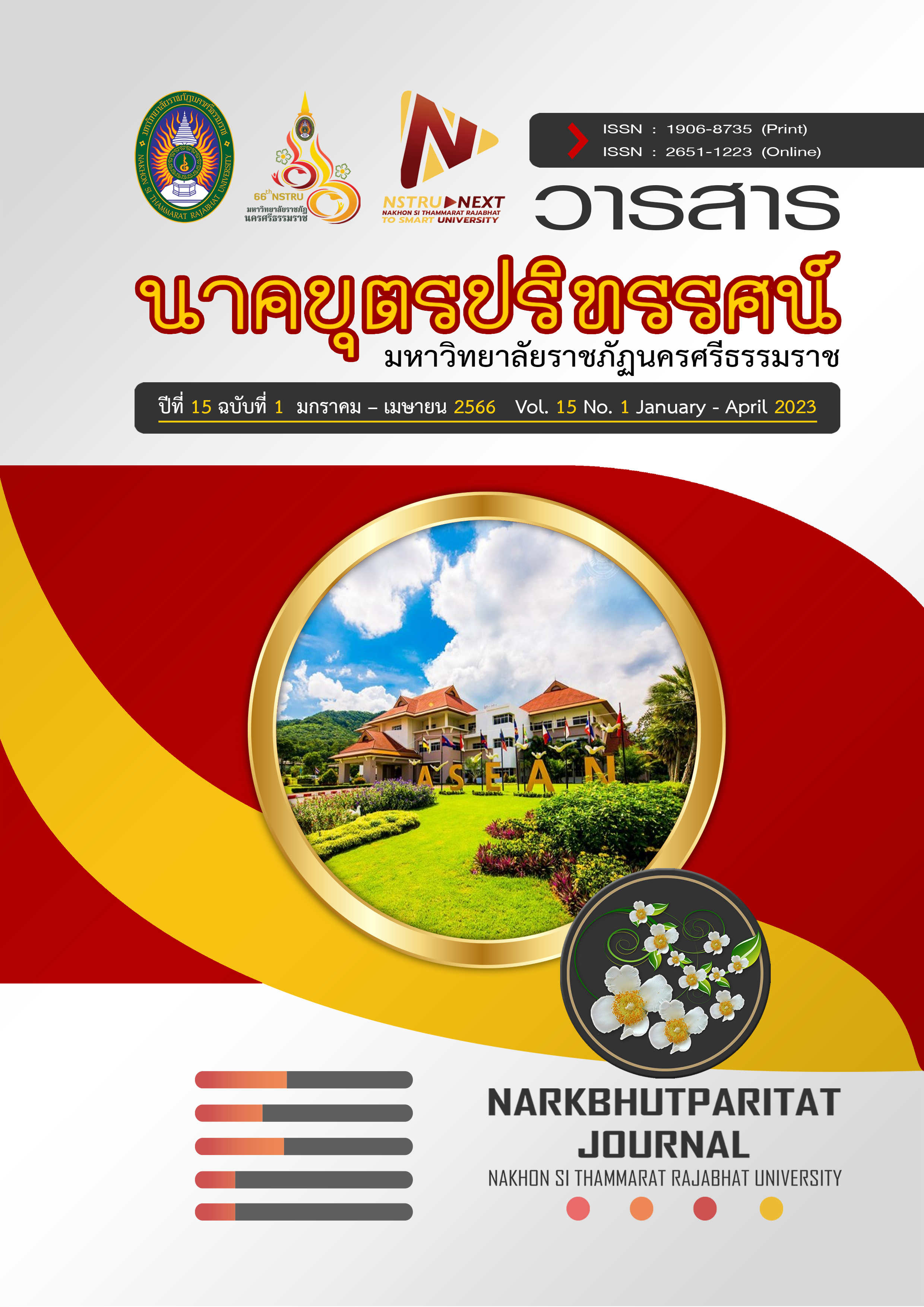Using Electronic Mind Mapping to Enhance EFL High School Students’ Critical Reading Skills
Main Article Content
บทคัดย่อ
The objectives of this study were to: 1) examine the effects of electronic mind mapping on critical reading skills of EFL high school students; and 2) investigate EFL high school students’ opinions about learning critical reading through electronic mind mapping. The participants in this study were 83 eleventh-grade students selected by purposive sampling. The instruments employed in this study consisted of lesson plans, a critical reading test, and a questionnaire. The data were analyzed using mean scores, standard deviation, and a t-test analysis. The results showed the effectiveness of electronic mind mapping. That is, the students improved critical reading skills after learning through electronic mind mapping. Also, the students had positive opinions about learning critical reading skills through electronic mind mapping.
Article Details

อนุญาตภายใต้เงื่อนไข Creative Commons Attribution-NonCommercial-NoDerivatives 4.0 International License.
เอกสารอ้างอิง
Aljaser, A. M. (2017). The effectiveness of electronic mind maps in developing academic achievement and the attitude towards Learning English among primary school students. International Education Studies, 10(12), 80-95.
Attaprechakul, D. (2013). Inference strategies to improve reading comprehension of challenging texts. English Language Teaching, 6(3), 82-91.
Buzan, T. (2004). Mind maps for kids: Study skills. London: Harper Thorsons.
Chaichompoo, C. (2017). Using e-Mapping to improve reading comprehension and summary skills of EFL students. NIDA Journal of Language and Communication, 22(30), 129-138.
Ellozy, A. R., & Mostafa, H. M. (2010). Making learning visible: Using e-maps to enhance critical reading skills. MERLOT Journal of Online Learning and Teaching, 6(3), 634-646.
Grabe, W. P., & Stoller, F. L. (2019). Teaching and researching: Reading (3rd ed. ed.). New York: Routledge.
Hudson, T. (2008). Teaching second language reading. ELT Journal, 63(1), 89-91. doi:https://doi:10.1093/elt/ccn061
Kaufman, J. (2021). Simple techniques to optimize your reading comprehension and retention. In The Personal MBA. Retrieved from https://joshkaufman.net/3-simple-techniques-to-optimize-your-reading-comprehension-and-retention/
Mala, D. (2019). Poor grades for Thai students in PISA tests. Retrieved 2022, January 2, from https://www.bangkokpost.com/thailand/general/1808509/poor-grades-for-thai-students-in-pisa-tests
Malekzadeh, B., & Bayat, A. (2015). The effect of mind mapping strategy on comprehending implicit information in EFL reading texts. International Journal of Educational Investigations, 2(3), 81-90.
Ministry of Education. (2008). Basic Education Core Curriculum B.E. 2551 (A.D. 2008). Bangkok: Kurusapa Ladprao.
Mohaidat, M. M. T. (2018). The Impact of electronic mind maps on students' reading comprehension. English Language Teaching, 11(4), 32-42.
Murray, D. W., & Rabiner, D. L. (2014). Teacher use of computer-assisted instruction for young inattentive students: Implications for implementation and teacher preparation. Journal of Education and Training Studies, 2(2), 58-66.
Phongploenpis, S., & Supangyut, M. (2018). The effect of mind map technique on students’ reading comprehension. International Journal of Management and Applied Science, 4(12), 49-53.
Pinter, A. (2017). Teaching young language learners. Oxford: Oxford University.
Sabbah, S. (2015). The effect of college students' self-generated computerized mind mapping on their reading achievement. International Journal of Education and Development using ICT, 11(3), 4-36.
Saori, S. (2020). The use of mind mapping to teach reading comprehension. Journal of Languages and Language Teaching, 8(2), 162-169.
Sawangsamutchai, Y., & Rattanavich, S. (2016). A comparison of seventh grade Thai students' reading comprehension and motivation to read english through applied instruction based on the Genre-based Approach and the teacher's manual. English Language Teaching, 9(4), 54-63.
Siriphanich, P., & Laohawiriyanon, C. (2010). Using mind mapping technique to improve reading comprehension ability of Thai EFL university students. The 2nd International Conference on Humanities and Social Sciences, 1-13. Retrieved 2021, January 2, from http://fs.libarts.psu.ac.th/research/conference/proceedings-2/4pdf/001.pdf
Varaporn, S., & Sitthitikul, P. (2019). Effects of multimodal tasks on students’ critical reading ability and perceptions. Reading in a Foreign Language, 31(1), 81-108.
Wang, Y. (2016). Application on mind map in college English reading teaching. Paper presented at the 2nd International Conference on Economics, Social Sciences, Arts, Education and Manage Engineering, Jinzhou, China.


